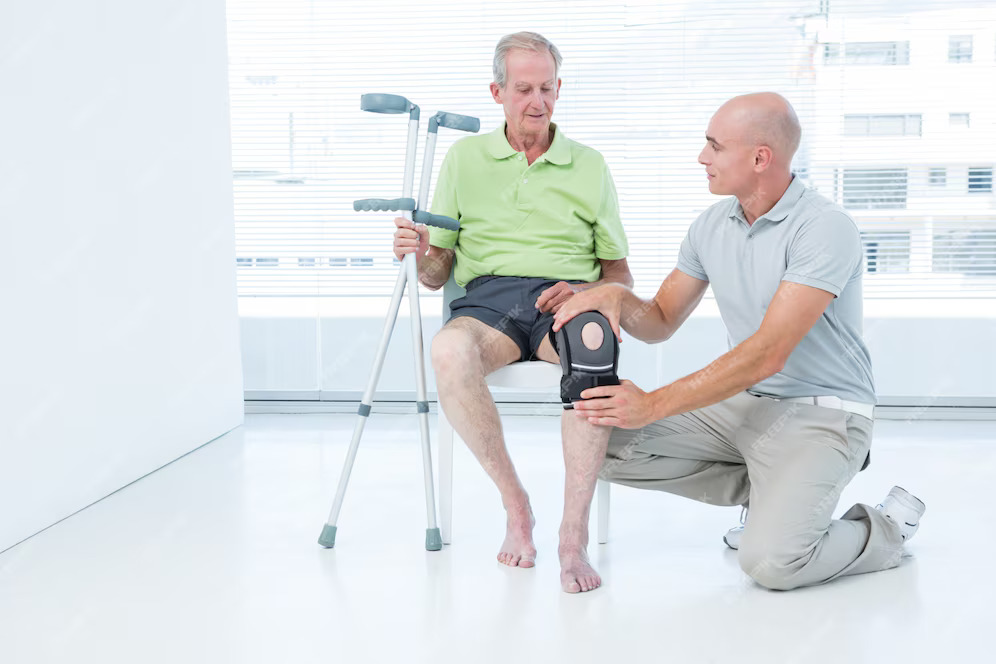Joint replacement surgery is a life-changing procedure for individuals grappling with chronic pain, reduced mobility, or joint damage caused by conditions like arthritis or injury. At Revive Rehab Hospitals, we are committed to empowering patients with the knowledge and support they need to navigate the journey of joint replacement surgery and recovery successfully. This guide offers comprehensive insights into the process, benefits, and the role of rehabilitation in achieving the best possible outcomes.
Understanding Joint Replacement Surgery
Joint replacement surgery involves replacing a damaged joint with a prosthetic implant made from metal, plastic, or ceramic materials. It is a highly effective treatment option for severe joint issues that cannot be managed through non-surgical methods. Common types of joint replacement surgeries include:
- Knee Replacement: Restores mobility and alleviates pain caused by osteoarthritis or injuries in the knee.
- Hip Replacement: Improves functionality and reduces pain in patients with damaged hip joints.
- Shoulder Replacement: Relieves pain and restores range of motion in the shoulder.
- Other Joints: Replacement procedures for elbows, ankles, or wrists may be performed in specific cases.
Who Needs Joint Replacement Surgery?
Joint replacement is typically recommended for individuals experiencing:
- Chronic joint pain that interferes with daily activities.
- Limited range of motion or stiffness in the joint.
- Swelling or deformities that persist despite medication or therapy.
- Ineffectiveness of other treatments like physiotherapy, injections, or lifestyle modifications.
A consultation with an orthopedic specialist is crucial to determine if joint replacement is the right option.
Preparing for Joint Replacement Surgery
Preparation is a key component of successful surgery and recovery. At Revive Rehab Hospitals, we guide patients through a structured pre-surgical process, which includes:
1. Medical Assessment
A thorough evaluation of your medical history, existing health conditions, and current medications ensures you are fit for surgery.
2. Prehabilitation
Engaging in targeted exercises weeks before surgery can strengthen muscles around the joint, improve flexibility, and enhance post-surgical recovery.
3. Lifestyle Adjustments
- Quit smoking to improve circulation and reduce complications.
- Maintain a balanced diet to promote healing.
- Arrange your home for a smoother recovery by clearing pathways and setting up assistive devices like walkers or grab bars.
4. Mental Preparation
Understanding the surgical procedure, rehabilitation plan, and expected outcomes helps manage anxiety and build confidence.
The Surgical Process
Joint replacement surgery is a meticulously planned procedure that typically follows these steps:
- Anesthesia: Depending on the type of surgery, general or regional anesthesia is administered.
- Joint Access: The surgeon makes an incision to access the damaged joint.
- Implant Placement: The damaged parts of the joint are removed and replaced with the prosthetic implant.
- Closure and Recovery: The incision is closed, and you are moved to a recovery room for observation.
Modern techniques like minimally invasive surgery and robotic-assisted procedures are used to reduce recovery time and improve precision.
Post-Surgical Recovery and Rehabilitation
Recovery from joint replacement surgery is a collaborative process involving the patient, surgeon, and rehabilitation team. At Revive Rehab Hospitals, we prioritize patient-centric care to ensure a smooth recovery journey.
1. Immediate Post-Operative Care
- Monitoring: Vital signs and surgical site are closely monitored to prevent complications.
- Pain Management: Medications and cold therapy are used to alleviate discomfort.
- Early Mobilization: Gentle movements, often within 24 hours, help prevent stiffness and improve circulation.
2. Rehabilitation Plan
Week 1–2: Early Rehabilitation
- Focuses on restoring basic mobility.
- Patients learn safe techniques for walking, climbing stairs, and transitioning from sitting to standing.
Week 3–6: Strength and Flexibility Training
- Incorporates tailored physical therapy exercises to strengthen muscles and improve joint flexibility.
- Emphasis on regaining independence in daily activities.
Week 7 and Beyond: Functional Recovery
- Advanced exercises focus on achieving pre-surgical levels of activity.
- Patients aiming to resume sports or physically demanding activities receive sport-specific training.
The Role of Physiotherapy in Joint Replacement Recovery
Physiotherapy is the cornerstone of a successful joint replacement recovery. It helps patients regain strength, balance, and confidence in their movement.
Benefits of Physiotherapy:
- Prevents post-surgical complications like blood clots or infections.
- Improves joint alignment and muscle coordination.
- Accelerates healing by promoting blood flow and reducing inflammation.
At Revive Rehab Hospitals, our physiotherapy programs are customized to suit each patient’s unique needs and recovery goals.
Lifestyle Tips for Long-Term Joint Health
Maintaining joint health after surgery is critical for the longevity of the implant and overall well-being. Here are some tips:
- Stay Active
Engage in low-impact exercises like swimming, cycling, or yoga to strengthen muscles without stressing the joint. - Maintain a Healthy Weight
Excess weight can strain your new joint, leading to wear and tear over time. - Follow Up Regularly
Routine check-ups with your orthopedic specialist ensure early detection of any issues. - Adopt Joint-Friendly Habits
Avoid high-impact activities, wear supportive footwear, and practice good posture to protect your joints.
Why Choose Revive Rehab Hospitals for Joint Replacement Rehabilitation?
At Revive Rehab Hospitals, we combine cutting-edge medical expertise with compassionate care to provide an exceptional rehabilitation experience. Our approach includes:
- Multidisciplinary Team: Experienced orthopedic surgeons, physiotherapists, and pain management specialists work together for holistic recovery.
- State-of-the-Art Facilities: Advanced equipment and therapy techniques tailored to individual needs.
- Personalized Care Plans: Rehabilitation programs designed to align with your health goals and lifestyle.
Your journey to pain-free living starts with a single step. Whether you’re preparing for joint replacement surgery or looking for the best rehabilitation support, Revive Rehab Hospitals is here to guide you every step of the way.
Take Charge of Your Recovery Today
Joint replacement surgery can transform your quality of life, offering relief from pain and the freedom to move with ease. At Revive Rehab Hospitals, we are dedicated to helping you achieve a successful recovery and regain your independence. Contact us to learn more about our comprehensive joint replacement and rehabilitation programs.



